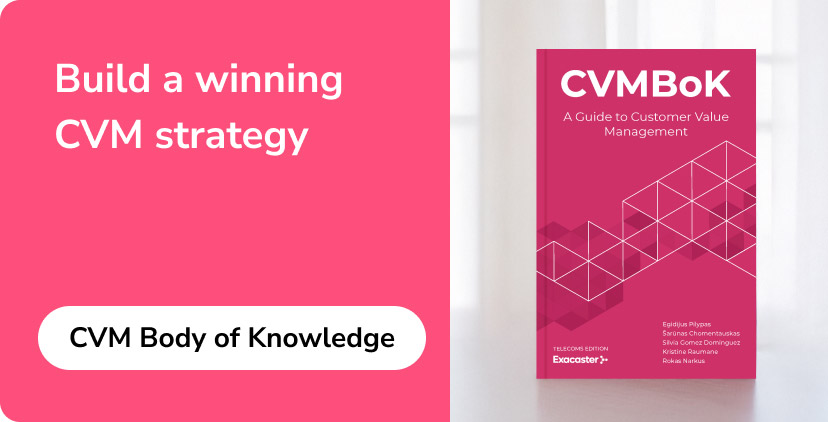Assisted inbound channel teams are crucial partners for CVM teams, managing customer interactions through physical stores, phone support, and human-assisted chat. These channels are often the first point of contact for customers, making them critical for delivering CVM initiatives effectively.
Assisted inbound channel teams act as gatekeepers for CVM teams by directly interacting with customers during key moments of truth, such as resolving issues, exploring offers, or providing feedback. Their role impacts CVM in several ways:
- Offering insights into customer needs and preferences, which helps refine CVM strategies
- Serving as the front line for delivering personalized recommendations and upselling opportunities
- Ensuring that customer concerns and feedback are addressed promptly, enhancing satisfaction
Misalignment between CVM and assisted inbound channel teams can hinder CVM’s effectiveness. For example, if agents lack access to the latest offers or communication templates, it may result in missed opportunities or customer dissatisfaction.
CVM teams support the assisted inbound channel teams by providing tools and training to improve their performance and ensure alignment with CVM objectives. This includes:
- Creating and delivering targeted offers, scripts, and templates that agents use daily
- Training agents on the details of CVM programs, ensuring consistent messaging
- Tracking the teams’ performance in executing CVM programs and addressing gaps
- Providing compensation or bonus systems that align with CVM goals, such as incentivizing upselling or retention
For example, if a retention campaign is launched, the CVM team ensures that agents have the necessary information and guidance to promote it effectively, tailoring their interactions to customer profiles.
CVM teams significantly influence the performance of the assisted inbound channel teams by:
- Steering the teams toward relevant offers and programs that contribute to achieving revenue and retention KPIs
- Providing insights into customer responses, which help refine scripts and offers
- Reducing operational risks, such as avoiding overloaded queues caused by poorly communicated campaigns or irrelevant offers
Mistakes in CVM messaging, such as errors in campaign texts or misaligned scripts, can lead to overloading the assisted inbound channels’ team, impacting their ability to handle customer interactions effectively.
Alignment between CVM and assisted inbound channel teams is essential for success. Key areas of collaboration include:
- Offer and message information: Ensuring that agents have the latest updates on CVM programs to provide accurate information to customers
- Message conversion tracking: Helping agents register feedback and conversions for continuous improvement
- Campaign planning: Aligning CVM campaign schedules with the channel’s capacity plans
- Team education: Training the assisted inbound channels team on CVM initiatives and their implementation
Clear communication and regular feedback loops are vital to maintaining alignment and delivering successful campaigns.
Strong collaboration with assisted inbound channel teams enables CVM teams to achieve their KPIs by ensuring that agents are equipped to execute initiatives effectively. Poor alignment, however, can result in disjointed messaging, overburdened teams, and missed opportunities to engage customers, ultimately affecting CVM performance.

Poor alignment with the CA team can have severe consequences for CVM. Missteps in pricing or targeting can lead to higher churn, lower ARPU, and reduced customer satisfaction. Strong communication, shared KPIs, and collaboration on strategy design are critical to achieving mutually beneficial outcomes. From the very beginning we have, let’s say, an awareness stage. Then we have a stage of conversion. Conversion mostly happens in a certain funnel. Then after conversion, you have onboarding. Onboarding means you have to get the customer into a state where they will start to use the product flawlessly. For example, let’s say you convert into a user of Tinder. If you don’t upload your photo, provide a decent bio, or list your interests, most likely you won’t get matches. If you don’t get matches, even if you allow location tracking, your probability to get a match will decrease sharply. In this case, you will fail during activation, which is defined as a certain period dedicated to creating a habit of app usage. A habit can be defined as the customer reaching a certain frequency of product usage during a set time period.
Previous: Branding
Next: Digital Inbound Channels





